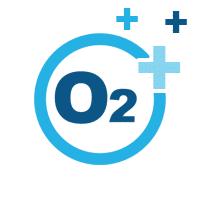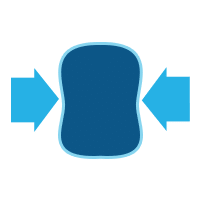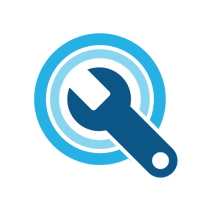Brain Damage
Brain damage is an injury that causes the deterioration or destruction of brain cells. Brain damage includes both Traumatic Brain Injury (TBI), caused by an external force, and Acquired Brain Injury (ABI), occurring at the cellular level. The severity of damage can vary based on they type of injury, but can range from headaches, confusion, and memory problems, to more severe cognitive, behavioral, and physical disabilities.
Benefits of Hyperbaric Oxygen Therapy for Brain Damage:

Increases Amount of Oxygen in the Blood
Stimulates development of new blood vessels from pre-existing vessels as well as the natural development of new blood vessels.

Reduces Inflammation & Swelling
Suppresses the cellular activity of the immune system which triggers swelling when an injury or damage to the body occurs. While this reaction is meant to start healing and protect from injury it can result in secondary injury, pain, and prolonged recovery time.

Preserves, Repairs, & Enhances Cellular Functions
Boosts cellular metabolism, promotes rapid cell reproduction, and enhances collagen synthesis. Collagen is a protein in connective tissues like skin.
Key Research on Hyperbaric Oxygen Therapy for Brain Damage
Recent News on Hyperbaric Oxygen Therapy for Brain Damage
Revolutionizing Brain Injury Treatment: HBOT Gives Hope to North Carolina Veterans
Traumatic brain injuries (TBIs) have become an all-too-common consequence of modern warfare, affecting countless veterans returning from combat zones. These injuries can have a profound impact on a person's quality of life, leading to physical, cognitive, and...
Chris Kamara says he could have avoided slurring speech condition which forced him to quit Sky job if it wasn’t for a ‘stupid’ mistake
Chris Kamara has claimed he could have avoided the speech condition that forced him to quit his job if he 'wasn't a dinosaur' and got checked sooner. The legendary former Sky Sports pundit revealed he had apraxia of speech in March. The condition can make it difficult...
Concussed Student-Athlete Program leading battle against brain injuries
Article cited by Alex Peterman Special to The Post DELRAY BEACH — How does one heal that which cannot be seen? It’s a riddle the Help Our Wounded (HOW) Foundation of South Florida is solving with science, targeting the most elusive of wounds that afflict the human...
Related Indications
Schedule a Consultation
Additional Research
Systematic Review and Dosage Analysis: Hyperbaric Oxygen Therapy Efficacy in Mild Traumatic Brain Injury Persistent Postconcussion Syndrome
Background: Mild traumatic brain injury results in over 15% of patients progressing to Persistent Postconcussion Syndrome, a condition with significant consequences and limited treatment options. Hyperbaric oxygen therapy has been applied to Persistent Postconcussion...
Changes in attentional processing following neurofeedback in patients with persistent post-concussive symptoms: a pilot study
Abstract Objective: Persistent post-concussive symptoms (PPCS) often include attention deficits, particularly orienting and executive attention. Research in other clinical populations has demonstrated that neurofeedback therapy (NFT) is effective at improving...
Systemic Inflammation Persists the First Year after Mild Traumatic Brain Injury: Results from the Prospective Trondheim Mild Traumatic Brain Injury Study
Abstract Innate immune activation has been attributed a key role in traumatic brain injury (TBI) and successive morbidity. In mild TBI (mTBI), however, the extent and persistence of innate immune activation are unknown. We determined plasma cytokine level changes over...
